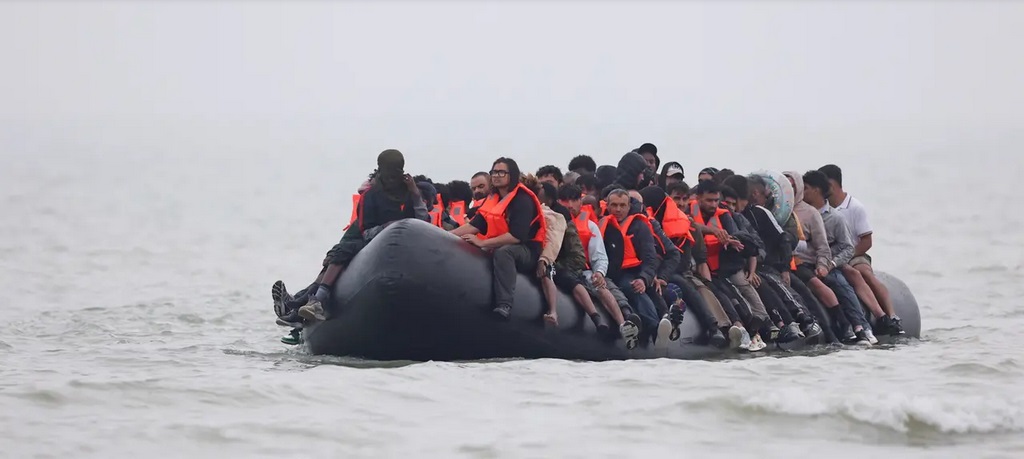France and the UK unveil a new exchange system aimed at reducing migrant crossings over the English Channel. While leaders tout progress, experts remain skeptical about its effectiveness in deterring refugees. Personal stories highlight the dangers and motivations behind such perilous journeys.
London and Paris Introduce Controversial Exchange System to Curb Channel Migration


London and Paris Plan Exchange System
France and Great Britain aim to curb migration across the English Channel through a type of exchange system. While the details remain unclear, experts are already skeptical about its chances of success.
The political agreement is presented as the highlight of this grand state visit, as French President Emmanuel Macron and Prime Minister Keir Starmer intended to showcase to the media. Although it marks progress compared to previous arrangements between the two countries to limit migration across the Channel, the bar for success isn't set very high due to past measures falling short of expectations.
For the first time, migrants arriving in England on rubber boats will be detained and sent back to France, announced the British Prime Minister during a press conference with Macron. In exchange, for every person sent back to France, a different individual will be allowed to come to the UK. The idea is to deter refugees, undermining the model of human smuggling networks, as Macron stated.
About 20,000 Refugees Since the Beginning of the Year
This mechanism is set to be implemented as part of a pilot project—a testing phase. However, it is still unclear how many migrants the UK will be allowed to send back. Reports suggest that it could be around 50 per week, which is not a significant number, considering that about 20,000 refugees arrived by boat across the Channel in the first six months of this year.
Experts are cautious about whether the agreed measures will genuinely deter people from attempting the crossing. Madeleine Sumption, director of the Migration Observatory at the University of Oxford, stated in a BBC interview that if only a small percentage of refugees are sent back, there is a possibility that those fleeing may see the risk of being returned as just another danger in an already perilous journey.
"Flight Fueled by Adrenaline"
This perspective is echoed in the experiences shared by refugees. At the Kent Refugee Action Network (KRAN) in Canterbury, we met Rishan, who fled from Eritrea to the UK ten years ago at the age of 17. She learned English at KRAN and now supports the organization. Rishan openly discusses her journey and her motivation to come to England:
"For me, it was simply important to get to a place where I felt safe."
Rishan traveled by boat from Libya to Italy. The smugglers promised that the crossing would be on a "big safe ship," which turned out not to be true. In France, she felt chased by police and was afraid. It was a flight fueled by adrenaline; she didn't choose her destination but simply followed others until she felt safe—eventually arriving in England. There, she was placed in a foster family, while some of her friends ended up in Germany and the Netherlands.
Advantages for Refugees in the UK?
Migration researchers point out that there are various reasons why people choose to flee to a specific country, such as language or already having family members there. The French side accuses the British government of making it easy for refugees to disappear in England, especially since there is no registration requirement. It's often noted that it is relatively easy to work illegally in the UK, although reliable data on this is lacking.
Currently, authorities in London are focusing on delivery drivers, conducting checks. The government has introduced legislation imposing penalties on companies that do not take sufficient action against illegal work. However, Rishan's case illustrates how refugees can arrive in a country unexpectedly.
Rishan expresses frustration over the lack of safe routes for fleeing. Such routes could make dangerous crossings unnecessary. In 2024, 82 people died trying to cross the English Channel. She also feels that, amidst various issues in the country, refugees are often scapegoated. When waiting lists for the UK National Health Service (NHS) are too long, refugees are commonly blamed, even though she is nearing completion of her training to become a nurse and works for the NHS.

 বাংলা
বাংলা  Spanish
Spanish  Arabic
Arabic  French
French  Chinese
Chinese 







